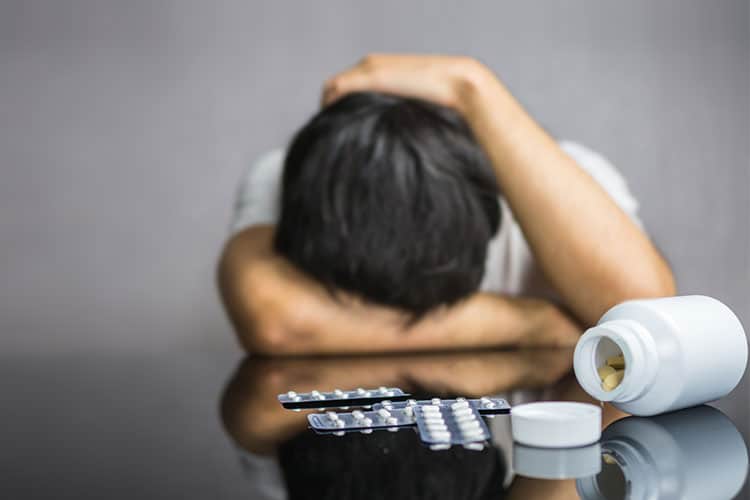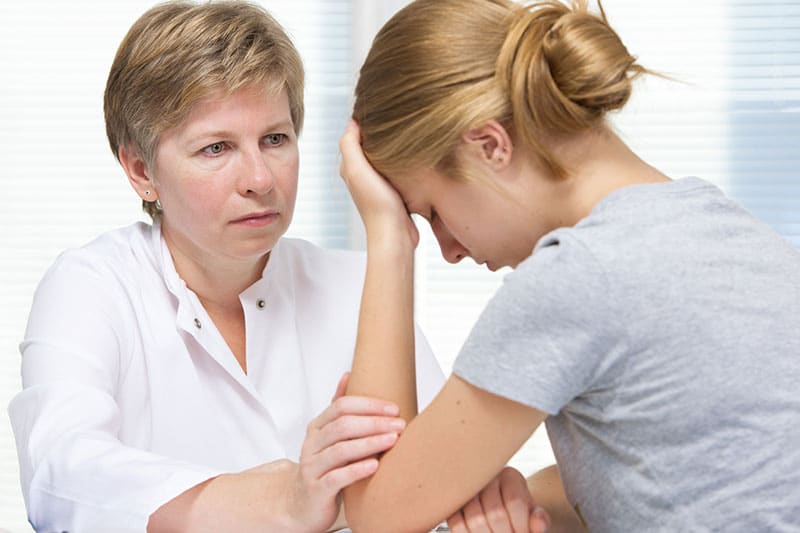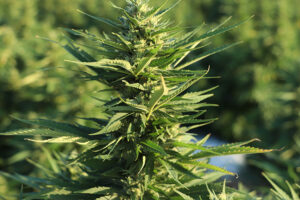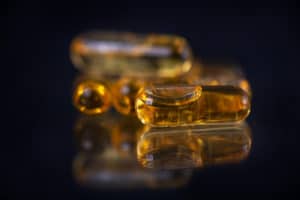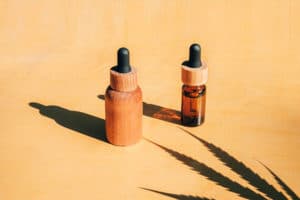In this time of pandemics and global disasters, the effects of depression have never been more clearly seen and heard.
During the coronavirus outbreak, minor facts of life for Americans have become significant determinants of their mental health. More than 70% of people in the United States now consider the economy a substantial source of psychological stress. Over one-third of the population has displayed signals of clinical depression, anxiety, or both since the pandemic began.
Even before COVID-19, anxiety, and depression ranked among the most prevalent mental illnesses in the United States. Over 40 million Americans over 18, or 18.1% of the population, suffer from clinical anxiety every year. Only 36.9% of these sufferers ever receive treatment.
There have been many homeopathic remedies that were said to help with depression and anxiety. However, unlike most physical disorders, mental problems are harder to treat, even for scientists with billions of dollars of corporate-backed funding. There have been many therapies and pharmaceutical regimens proposed to combat this issue, but one of the biggest rising stars is a natural remedy called Cannabidiol or CBD. CBD for depression has become a very popular treatment in recent years.
What is CBD?
Cannabidiol is a naturally occurring chemical in the Cannabis Sativa plant. While marijuana use has been controversial since the ’60s, CBD does not have the psychoactive effects of consuming a marijuana leaf. It is entirely different from the chemical tetrahydrocannabinol, which is responsible for getting people high, yet it still retains the mental health benefits that Cannabis Sativa can offer.
See all CBD oil benefits here.
Can You Get High from CBD?
The majority of people do not experience mental effects like euphoria or listlessness when consuming CBD. However, they report a sense of calm, peace, and general wellness after consumption. These anecdotal reports led to the study of CBD as a cure for many of the symptoms of depression, anxiety, and the overwhelming stress that accompanies the modern lifestyle.
There are two species of the Cannabis Sativa plant, namely, marijuana and hemp. Both of them contain CBD, but hemp has a very low THC percentage of 0.3% or less compared to its more controversial brother.
When shopping for CBD, it’s also common to find hemp oil and hemp lotions. These do not contain any cannabinoids like THC or CBD, even though they are extracted from hemp seeds. They simply carry fats, nutrients, and compounds that are notable for their moisturizing properties, so they’re often used in many beauty products.
CBD as Treatment
Research on CBD is in its early days, but there have been many conditions for which it may be useful. For example, in the pre-clinical studies conducted by the National Institutes of Health, they found that CBD can play a role in managing the stiffness, swelling, and chronic pain brought on by arthritis. They’re also looking at its properties to relieve post-surgical pain, lower back pain, neurogenic pain, and many other chronic discomforts that may stem from an initial trauma.
CBD has proven anti-inflammatory properties. A government-approved drug called Nabiximols (Sativex) is already in use in Canada and the United Kingdom to treat pain from multiple sclerosis. Its symptoms can range from weakness, numbness, to a burning sensation or an electric shock that occurs at random, or received as a touch response when contacting a sufferer. It’s worth noting that 50% of patients with MS encounter depression while they’re ill.
CBD is already used to treat:
- Epilepsy
- Dystonia
- Crohn disease
- Parkinson’s disease
CBD for the Treatment of Anxiety
People who suffer from GAD or generalized anxiety disorder undergo an unusual amount of mental stress from overthinking about everyday situations. While anxiety is natural in many areas of life, like finances, job uncertainty, and some unstable relationships, people with GAD experience a paralyzing worry that can last for weeks or months. Many of the subjects that they worry about for prolonged periods would affect other people for just a few hours.
CBD works by interacting with different receptors in the brain to alleviate the effects of anxiety. While research for this is still ongoing, some early results are promising, especially with regards to THC-free CBD oil and its interface with the proteins in the cells of the nervous system.
Receptors are chemical components in cells that help people respond to external stimuli such as light, heat, or a familiar face. They are composed of protein, which helps them transmit signals that carry over into a reaction from the brain. Researchers are currently studying how CBD interfaces with the CB1 and CB2 receptors of the human endocannabinoid system in the peripheral nervous system and the central nervous system.
Researchers originally studied the endocannabinoid system (ECS) to understand the effects of THC. THC is the psychoactive part of the cannabis plant. Due to the longstanding controversy over cannabinoids, we haven’t discovered much about their impact on the nervous system. However, studies have proven that ECS can improve many facets of health, such as reducing inflammation from chemotherapy and autoimmune disorders.
For Generalized Anxiety
Dr. Esther Blessing, a psychiatrist and researcher from New York University, said in an interview on National Public Radio, “There’s really good evidence to suggest that CBD could be an effective treatment of anxiety and addiction, but we need clinical trials to find out.” Since then, many short-term studies on humans and animals have proven CBD’s anti-anxiety and anti-inflammatory properties.
The National Institute on Drug Abuse reports that CBD has reduced mental stress in animals like rats for generalized anxiety disorder. With exposure to CBD, their physiological responses to anxiety-like an increased heart rate, restlessness, and a propensity for agitation — all decreased. [5] More human trials are expected to commence in the coming years with the legalization and the rise in the social acceptability of cannabinoids across the States.
For PTSD and Social Anxiety
CBD can also help treat more complicated forms of anxiety-like post-traumatic stress disorder and social anxiety disorders. A person with a social anxiety disorder is often falsely perceived as being shy. Still, their irrational fear of social activity may deter their attendance at school and work and hamper their relationships with friends. The symptoms of PTSD can be more subtle and can range from a heightened feeling of danger to recurring nightmares about a traumatic event.
A 2010 study revealed that people with social anxiety experience reduced blood flow to the brain’s specific nervous regions associated with anxiety when taking CBD. This study shows that CBD not only made the participants feel better, but it also made a significant change in their neurology.
Another study in 2011 also revealed that participants with a fear of public speaking had a reduction in anxiety when using CBD. A case study in 2016 by the University of Colorado School of Medicine found that CBD can reduce disruptions in sleeping patterns caused by PTSD and anxiety in a child with past trauma.
Finally, a 2015 tally of previous CBD studies found that cannabinoids are viable for social anxiety and PTSD, as well as obsessive-compulsive disorders and panic disorders. But, it is worth noting that long-term data for the use of CBD oils and capsules are still unavailable, which may make potential consumers uneasy. There is very little information about how long someone should receive CBD treatment or determine if it’s a viable lifetime supplement.
CBD for the Treatment of Depression
While depression and anxiety share the same biological reactions in the nervous system, they are markedly different. People who experience anxiety may worry, feel restless, and isolate themselves. In contrast, people with depression feel hopeless, have a low sense of self-worth, and express suicidal thoughts more often.
Using CBD for depression works by eliminating the anxiety, social discomfort, and the cognitive handicaps that come with self-isolation and emotional helplessness.
CBD and Serotonin
Serotonin is a neurotransmitter derived from tryptophan, which you mainly find in the human gastrointestinal tract, central nervous system, and blood platelets. Researchers found that lobsters injected with serotonin behave as alphas. Many big pharmaceutical companies have made antidepressant medications that raise serotonin in the blood to control appetite, improve memory, quality of sleep, and regulate negative moods.
Studies show that people who experience depression have low numbers of serotonin. Medical professionals prescribe selective serotonin reuptake inhibitors (SSRIs) like Zoloft and Prozac as remedies, but they are much more prone to misuse — unlike CBD. While CBD doesn’t necessarily increase the serotonin levels in the blood, it may change the sensitivity of the brain’s receptors to the amount that’s already present.
In 2018, a review by Frontiers in Immunology revealed that, for the most part, existing CBD studies have proven that it reduces stress, which is one of the most common gateways to depression. In 2014, a Bentham Science study revealed that CBD produced an antidepressant effect on animal subjects’ nerve receptors.
There are many advantages to choosing CBD over mainstream pharmaceuticals. So far, they don’t appear to have side effects that are as extreme as many antidepressants, and they can quickly take effect. However, as previously mentioned, CBD is still an area of ongoing pharmacological research, and long-term effects on humans are still yet to be determined.
Things to Consider When Choosing CBD
CBD is commonly sold through oils and capsules. They can either be ingested, applied to the skin, or dropped under the tongue for sublingual consumption. Not all CBD products are equal, and here are few things to consider when choosing one for depression and anxiety.
CBD Potency
It’s essential to know the potency of CBD products by looking at how many milligrams are right for consumption. Some CBD oils can have a higher amount of CBD per drop. Usually, higher potencies mean greater efficiency, but if you’re a beginner trying your first product, you should look for companies that offer a wider range of concentrations.
Where Does It Come From?
Europe and the United States now have laws to regulate the planting of quality CBD within their lands. However, some companies go the extra mile by ensuring their products are free of pesticides, contaminants, chemicals, and GMOs, and certifying that they’re THC-free. But, some CBD concentrates are potent even without THC. So, to ensure a productive workday while enjoying the peace and pain relief that CBD can provide, it pays to check the label.
The Blend of Extracts
In general, there are only three blends of cannabinoid extracts, but their effects on the body can differ wildly. A full-spectrum cannabinoid mixture will contain every cannabinoid as they appear in the plant. Broad-spectrum cannabinoids will provide the same substances, but the THC and CBD isolates will remove all cannabinoids except CBD.
How to Use CBD for Anxiety and Depression
While you can use CBD like any mainstream pharmaceutical drug, the different variations make it much more fun. You can order CBD oils at different concentrations and flavors. After asking a doctor what’s right for you, you can experiment with different combinations until you find your sweet spot. CBD oil capsules and gummies are also becoming popular, and they can be ordered sugar-free and gelatin-free.
It’s important to remember that while a growing number of people are discovering the secret benefits of CBD, healing from depression is a highly personal matter. A combination of treatments that work for you might not work for somebody else. The current scientific research around CBD is growing by the day, but researchers still won’t have viable data for long-term effects until long after the treatment launches into the mainstream.
If you or someone you know is suffering from untreated anxiety or depression, seeking professional help for holistic recovery is very important. Ask your doctor before taking CBD, and journal the things you experience so you can find out if it’s right for you.
FAQs About CBD and Depression
Question: Can CBD help in treating Depression?
Answer: CBD May help in treating depression. Using CBD for depression works by eliminating the anxiety, social discomfort, and the cognitive handicaps that come with self-isolation and emotional helplessness.
Question: Can you get high on CBD?
Answer: The majority of people do not experience mental effects like euphoria or listlessness when consuming CBD. However, they report a sense of calm, peace, and general wellness after consumption.
Question: Can you use CBD as a medical treatment?
Answer: Research on CBD is in its early days, but there have been many conditions for which it may be useful. For example, in the pre-clinical studies conducted by the National Institutes of Health, they found that CBD can play a role in managing the stiffness, swelling, and chronic pain brought on by arthritis.
Question: Can CBD help in treating PTSD and Social Anxiety?
Answer: CBD can help treat more complicated forms of anxiety-like post-traumatic stress disorder and social anxiety disorders. There are already studies conducted to prove CBD can help. But, it is worth noting that long-term data for the use of CBD oils and capsules are still unavailable right now.
Question: What are the things to consider when choosing CBD products?
Anwer: Some factors you want to consider are the CBD potency, Where does the source of CBD came from, and what type of blend extract was used on the product.
Question: Can I take CBD for depression even without doctor’s advice?
Answer: You should always consider getting professional help. Ask your doctor before taking CBD, and journal the things you experience so you can find out if it’s right for you.
